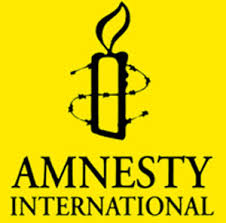Release Opposition Leaders Under House Arrest Three Years on

The easing of restrictions placed on former presidential candidates Mehdi Karroubi and Mir Hossein Mousavi and his wife, university professor and political activist, Zahra Rahnavard, since the election of President Rouhani is not enough, warned Amnesty International on the third anniversary of the house arrest of the three opposition figures. The opposition leaders have been held without charge or trial for three years, with no possibility to challenge the lawfulness of their detention. The organization urges the Iranian authorities to immediately end their arbitrary detention and stop the harassment of their families.
The three opposition figures remain in a legal limbo as no security body is claiming responsibility for their prolonged house arrest amid contradictory official statements. In October 2013, Iran’s Justice Minister, Mostafa Pour-Mohammadi, said that Iran’s Supreme National Security Council was reviewing their house arrests but a month later Iran's Prosecutor General and Judiciary spokesperson, Gholamhossein Mohseni Eje'i, said that “those who were put under house arrest after the 2009 election were criminals and had oppressed the people,” and that “no changes have been made in their punishment.” On 16 January 2014, Mostafa Pour-Mohammadi stated during a conference that the “country would have witnessed renewed protest, unrest, and demonstrations had there been a trial” and therefore authorities have determined that “they should remain restricted.” On 4 February 2014, Mostafa Pour-Mohammadi announced that the opposition figures “could be pardoned” if they repent and promise to abide by the country’s laws, a position confirmed by Gholamhossein Mohseni Eje'i on 11 February 2014 when he announced that "as long as the sedition leaders do not repent, nothing else will be done and their situation will remain the same”.
In February 2011, the Iranian authorities placed all three individuals in effect under house arrest after Mehdi Karroubi and Mir Hossein Mousavi called for demonstrations in support of the popular uprisings in the Middle East and North Africa region. Despite repeated international calls for their release, not only have the Iranian authorities refused to release the opposition figures but have also subjected their family members to harassment and persecution
The authorities have prevented all three individuals from meeting and communicating regularly with other members of their families. In October 2013, Mir Hossein Mousavi and Zahra Rahnavard’s daughters were permitted a short visit with their parents for the occasion of the Shi’a Muslim holy day, Eid al-Ghadeer, but were allegedly assaulted by female security officers during the visit. In February 2013, two days before the second anniversary of the arbitrary house arrests of their parents, Zahra and Narges Mousavi, daughters of Mir Hossein Mousavi and Zahra Rahnavard, and Mohammad Hossein Karroubi, son of Mehdi Karroubi were arrested. They were released later the same day.
Of particular concern to Amnesty International are the health conditions of the three figures, all of whom are suffering with physical ailments and have at times been unable to have access to adequate medical care. In July 2013, Mir Hossein Mousavi was finally allowed to visit a hospital under the supervision of security officers after suffering from a heart condition for one year. In October 2013 he told his daughters of his wife’s health condition, as Zahra Rahnavard appears to suffer from high blood pressure and irregular heartbeats.
Mehdi Karroubi’s health has also been deteriorating since his house arrest; he has had no proper access to sunlight and fresh air and has been suffering of osteoporosis and very low vitamin D levels. He had been held in a Ministry of Intelligence safe house in Tehran since his house arrest until he was moved to his own home in Tehran on 2 February 2013 where he is under watch by security officers. The windows in the safe house had been covered with dark sheets, stopping any sunlight from coming in. According to Mehdi Karroubi’s son, Mohammad Hossein Karroubi, his father’s doctors in November 2013 had said that in order to stop his health from deteriorating further, Mehdi Karroubi would need access to direct sunlight and physiotherapy, among other medical treatments. In January 2014, Fatemeh Karroubi, Mehdi Karroubi’s wife, said that her husband had been hospitalized for nine days after undergoing back surgery in a Tehran hospital.
In August 2012, the United Nations Working Group on Arbitrary Detention, issued an opinion that the Iranian authorities had violated not only international law but also Iranian law by arbitrarily detaining Mehdi Karoubi, Mir Hossein Mousavi, and Zahra Rahnavard. The Working Group recommended that the Iranian government release them immediately and provide them with compensation as provided for in Article 9 of the International Covenant on Civil and Political Rights, to which Iran is a state party.
Background
Mir Hossein Mousavi, former Prime Minister and Mehdi Karroubi, former Speaker of Iran’s parliament, had been presidential candidates in the 2009 election in which the incumbent President Mahmoud
Ahmadinejad was declared the winner, in disputed circumstances. The announcement of his victory set off huge protests in Tehran and other cities, which the authorities violently suppressed, followed by arrests and show trials of journalists, government critics, and opposition activists linked to the campaigns of Mir Hossein Mousavi and Mehdi Karroubi. After the election, authorities tightly monitored and controlled the movements of both men and their wives, and suspended the presidential candidates’ newspapers Etemad-e Melli and Kalameyeh Sabz. In mid-February 2011, in the wake of their joint appeal for Iranians to demonstrate in support of pro-reform protests in Egypt and Tunisia, the men and their wives were placed under house arrest without court orders.
Public Document
****************************************
For more information please call Amnesty International's press office in London, UK, on +44 20 7413 5566 or email: [email protected]
International Secretariat, Amnesty International, 1 Easton St., London WC1X 0DW, UK www.amnesty.org